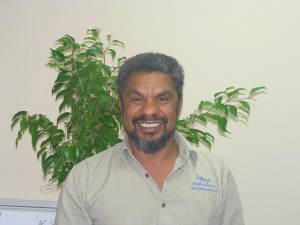 One year from its formation, the World Indigenous Tourism Alliance (WINTA) is preparing for another busy year in sharing understanding about the potential of Universal Indigenous values to deliver improved social, environmental and economic outcomes around the planet - not just for Indigenous peoples, but for all peoples.
One year from its formation, the World Indigenous Tourism Alliance (WINTA) is preparing for another busy year in sharing understanding about the potential of Universal Indigenous values to deliver improved social, environmental and economic outcomes around the planet - not just for Indigenous peoples, but for all peoples.
WINTA was formed by Indigenous tourism organisations from Australia, Canada, Nepal, New Zealand, the Sápmi Lands and the United States on 28 March 2012.
Australia’s Kimberley man and Inaugural WINTA Chairman, Mr Neville Poelina, said “the formation of WINTA marks a major milestone in the development of international Indigenous tourism and followed earlier discussions by Indigenous Tourism Leaders in countries across the globe”.
Within its 1st year of operation WINTA has collaborated with the Adventure Travel Trade Association in the delivery of the first World Indigenous tourism forum in Lucerne in October 2012. Mr Poelina said “the forum provided an amazing opportunity for all sectors with an interest in the WINTA vision for the development of a tourism industry which operates according to universal Indigenous values”.
The WINTA network of tourism business interests now covers 34 countries throughout the world. This network is expected to expand further during the next 12 months.
Mr Poelina said “WINTA is delighted by the support that exists from both Indigenous and non-Indigenous organisations for the WINTA vision. While WINTA is an Indigenous tourism initiative, WINTA has a very important role to play as a cultural bridge builder and bringing together various interests to explore the potential of Universal Indigenous values to deliver benefits for all peoples”.
Mr Poelina said “2013 is a busy year for international Indigenous tourism with conferences being held in Africa, Australia, Canada, and USA”.
WINTA’s partnership with the Adventure Travel and Tourism Association (ATTA) will again enable the delivery of another international Indigenous tourism forum at the World Tourism Summit in Namibia later in October 2013. Extensive participation by a range of stakeholders ranging from community based tourism organisations, government agencies, industry associations and community service organisations is expected.
